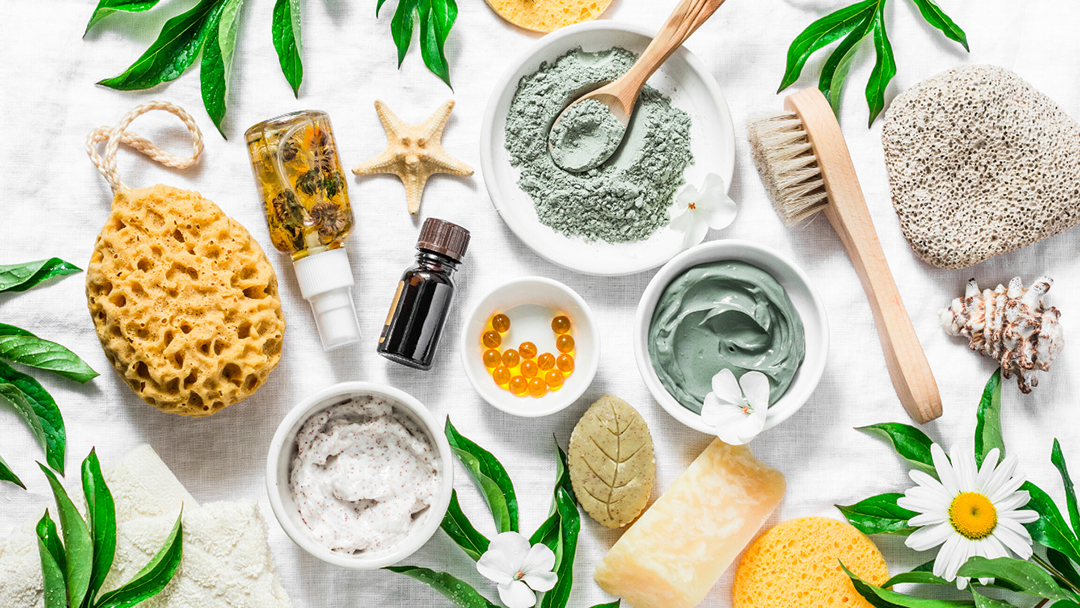Creatine and Teens: Is It Safe?
The latest nutrition trend that both teens and their perimenopausal moms are trying? Creatine.
Claims about the benefits of the supplement fill social media feeds and (spoiler alert!), some of these are actually backed by reliable science.
Creatine has been extensively studied and used by athletes for years to help boost muscle mass and performance. But like any supplement, creatine isn’t regulated by the Food and Drug Administration (FDA), and you can’t be sure what you’re buying is safe. And even though there’s plenty of research on creatine, most studies have focused on adults.
So is it safe for teens? “Creatine can be safe for teens, but it’s important to weigh the potential modest benefits against the risks,” says registered dietitian Amy Stephens, a certified specialist in sports nutrition in New York City who works with the New York University athletic department. Here’s what to know.
What Is Creatine?
Creatine is a naturally-occurring compound in the body made of three amino acids — arginine, glycine, and methionine. Produced by the liver, kidneys, and pancreas, and primarily stored in the muscles, it helps produce adenosine triphosphate (ATP), your body’s cellular “energy currency.” In addition to making creatine, your body absorbs it from dietary sources of animal-based foods, in particular red meat and fish.
Most people (including teens) can maintain their creatine stores through diet, but many athletes use creatine supplementation — most commonly creatine monohydrate — to help improve performance in certain types of exercise and training.
“Creatine, one of the most studied ergogenic aids, increases phosphocreatine stores in skeletal muscles, improving ATP production during high-intensity exercises like sprinting and weightlifting,” explains Laura Goldberg, M.D., a pediatric sports medicine specialist at University Hospitals and clinical assistant professor of pediatrics at Case Western Reserve University School of Medicine in Cleveland, OH. “Studies show creatine supplementation enhances skeletal muscle mass, strength and power, and muscular endurance.”
Why Does My Teen Want To Take Creatine?
“The most common reason teens want to take creatine is to increase muscle strength and size,” says Stephens. “Research suggests that, when used correctly and combined with consistent resistance training, creatine may lead to a six to ten percent improvement in lifting strength over a five-week period.” That means an athlete who is able to bench press 100 pounds, might, in theory, be able to increase that load to 110 pounds.
Creatine supplementation may also give athletes a performance boost in “high-intensity” sports that require quick bursts of strength, such as football or sprinting, and it may play a role in faster recovery from muscle soreness after intense training. (There is little to no proven benefit to taking creatine when it comes to endurance sports like running or swimming.)
But the research supporting these benefits has primarily focused on adults, and supplements may present different risks in growing teen bodies.
“While some studies have reported benefits, it’s important to note that most have small sample sizes and limited long-term data specific to teens,” cautions Stephens, who points to a recent review of over 9,000 journal articles on creatine supplementation in teens ages 11 to 18, which found the overall quality of the existing research to be poor and lacking consistent findings.
A Growing Trend
Creatine use has typically been more common among male athletes such bodybuilders and football players. And in teens, creatine use appears to still be more common in boys than girls.
The University of Michigan’s most recent Monitoring the Future report, which surveys substance use in 25,000 U.S. secondary school students each year, found that creatine use has increased in the five-year period following the pandemic.
In this year’s survey, 13 percent of twelfth graders reported using creatine in the past 12 months; 11.7 percent of tenth graders; and 4.6 percent of eighth graders. Study authors hypothesize this increase may be due to the rise in fitness and weightlifting that occurred during the social distancing policies of the pandemic.
Creatine use was more common in boys across all age groups with 22 percent of twelfth grade boys having used creatine compared to 4 percent of girls; and 19 percent of tenth grade boys versus 3.6 percent of girls.
This gender divide may be less pronounced among competitive athletes. In a global study of elite teen athletes, 72 percent of males and 28 percent of females reported using creatine to enhance sports performance.
Dr. Goldberg stresses the need for more research in both adolescents and female athletes — and notes the potential benefits for women post-menopause who are more prone to losing muscle mass as they age. “The more we study creatine, the more we learn it may have medical and health benefits beyond athletes.”
Is Creatine Safe for Teens?
Creatine can be safe for teen athletes, particularly those involved in strength or power sports, but there are plenty of reasons to skip it.
“For highly active teens who are already training hard, eating well, and getting quality sleep, creatine may offer a modest performance boost,” says Stephens. “But for most teens, it’s more valuable to first focus on the foundations: nutrition, sleep, exercise, and recovery.”
There’s reason to hold off from a mindset standpoint as well, she adds: “It’s important for a teen to know what their bodies are capable of before adding a supplement.”
The American Academy of Pediatrics (AAP) does not recommend the use of performance-enhancing supplements for those under 18, citing the lack of research showing benefits in younger athletes and the absence of FDA regulation.
“A major concern with creatine — and all dietary supplements — is quality control,” says Stephens. “Supplements are not regulated by the FDA in the same way that prescription medications are. As a result, some products may contain undisclosed ingredients or may not match what’s listed on the label.” Contamination is a risk as well.
It’s also important to be aware of possible side effects of creatine use including temporary weight gain (often 1 to 3 pounds in teens) and to know that it’s not recommended for anyone with an existing kidney condition.
How To Take Creatine Safely
Is your teen planning to try creatine? Here’s how to help them stay safe.
Talk to your teen. “If your teen is asking about creatine, use it as an opportunity to have a broader conversation about fueling, training, and overall health,” says Stephens. Seek help from a health professional if you have concerns about an eating or exercise disorder, or your teen’s mental health.
Consult your teen’s health care provider. It’s always a good idea to check in with your teen’s health care provider before they start taking any supplement. The typical recommended dose of creatine monohydrate is generally 3 to 5 grams per day, says Dr. Goldberg. Taking it with a carbohydrate and/or protein may help increase absorption.
Include dietary sources of creatine. Healthy food sources of creatine, says Stephens, include red meat such as beef or lamb, pork, poultry, and fish (in particular herring, salmon, and tuna).
Choose “third-party tested” products. Both experts recommend choosing a product that’s been tested by an independent third party — meaning that a company other than the manufacturer has evaluated it. Reliable companies to look for on the product’s label include USP, Informed Sport, and NSF Certified for Sport. Examples of third-party tested brands include Thorne, Bulk Supplements, and Klean Athlete.
Opt for “creatine monohydrate.” This is the most studied type of creatine supplement.
Skip the “loading phase.” While some adults start with an initial higher dose “loading phase” of creatine to build up the body’s creatine stores, both experts say it isn’t necessary for teens.
Take a break. Stephens suggests cycling off creatine every few months to reassess whether supplementation still seems necessary. And continue to stress the important role that proper hydration, sleep, and healthy eating have in performance.
Before you go, shop our favorite skincare brands for teens:
Source link
Share this article:












